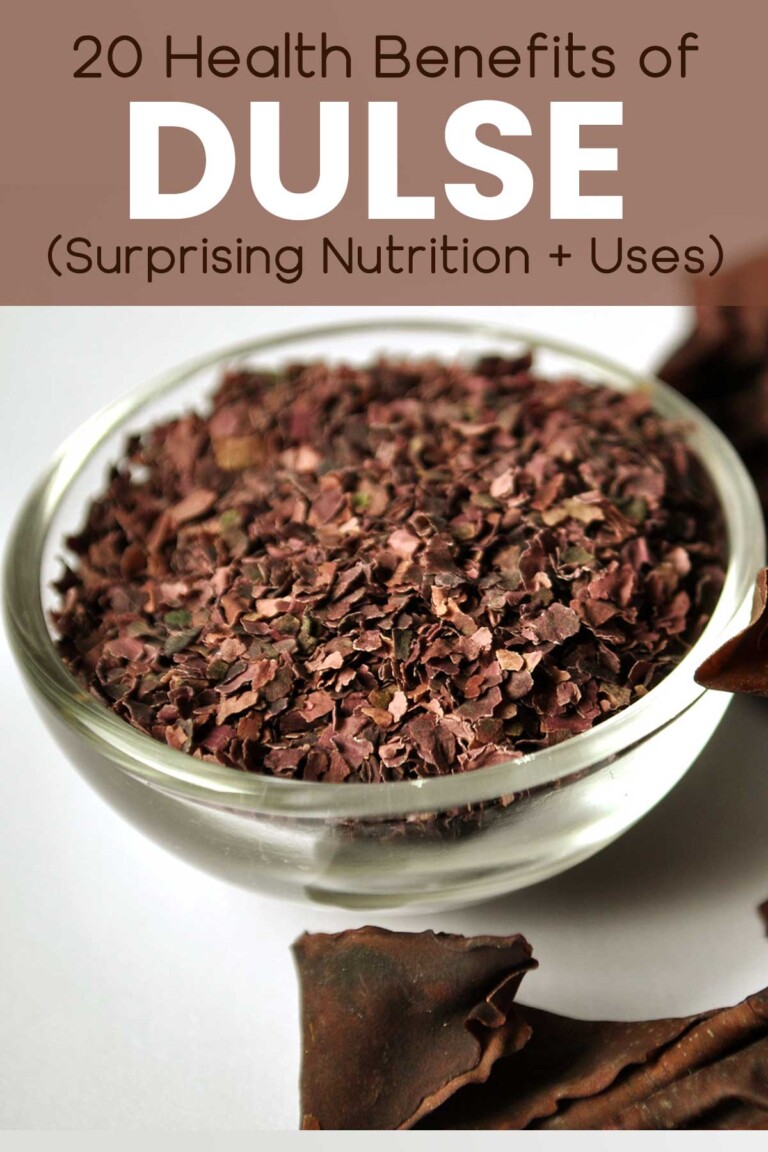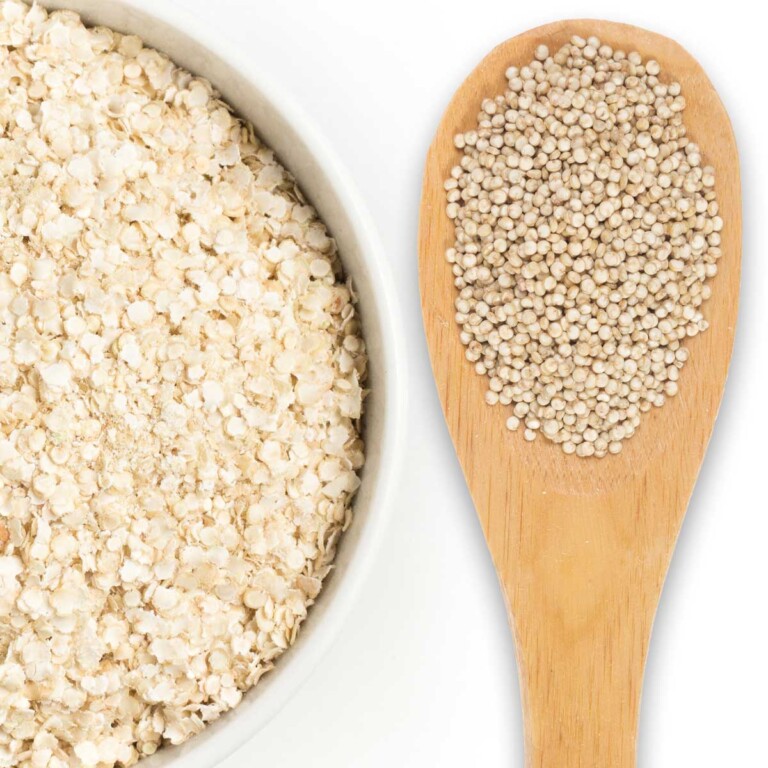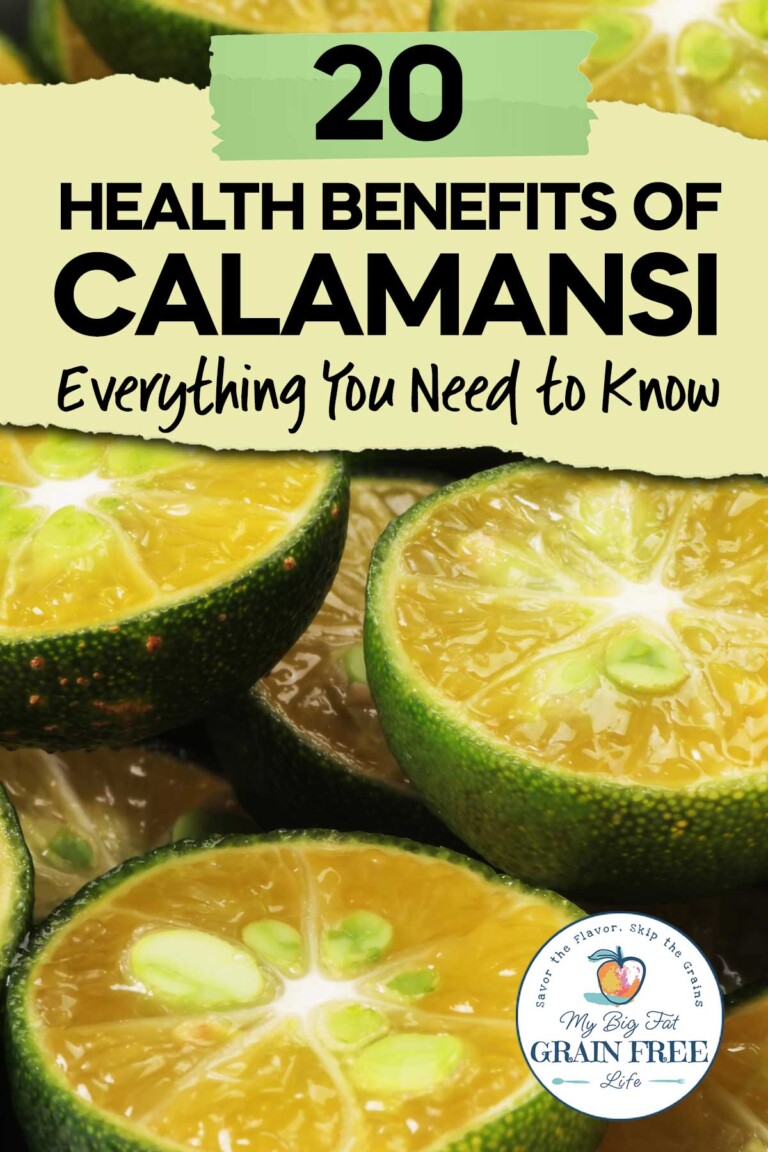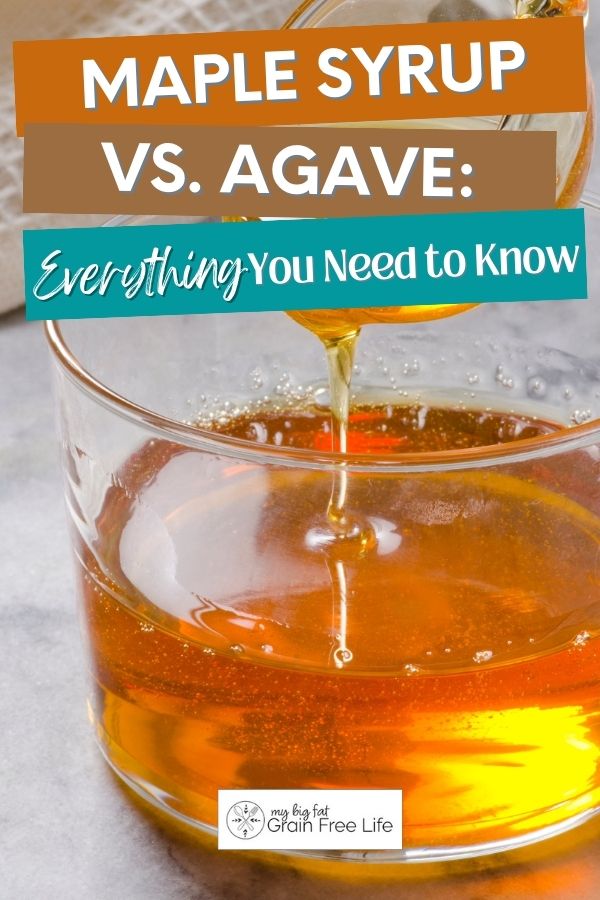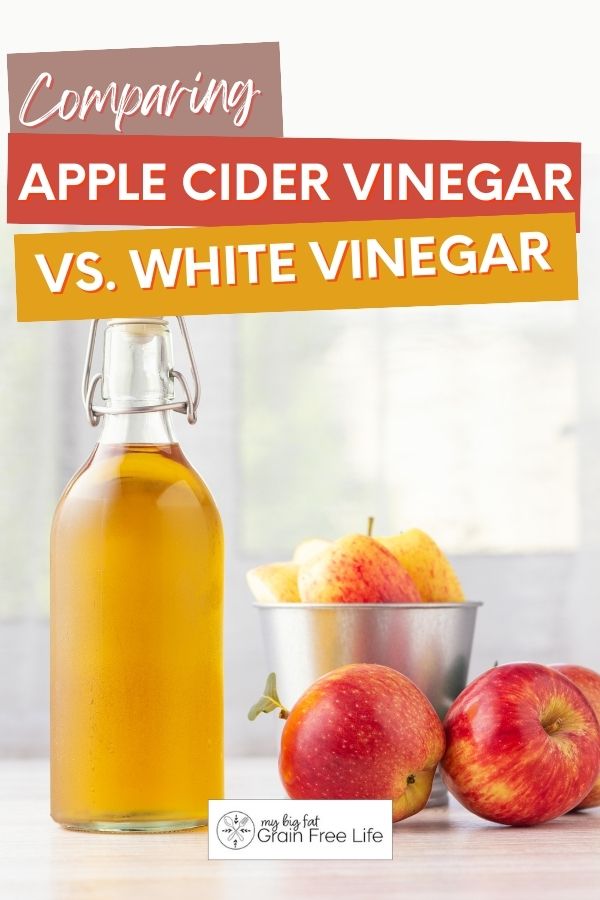Health Benefits of Chicken Hearts + Ways to Eat Them
This post may contain affiliate links. If you make purchase after clicking a link, I may receive a commission at no extra cost to you.
Last Updated on August 18, 2023
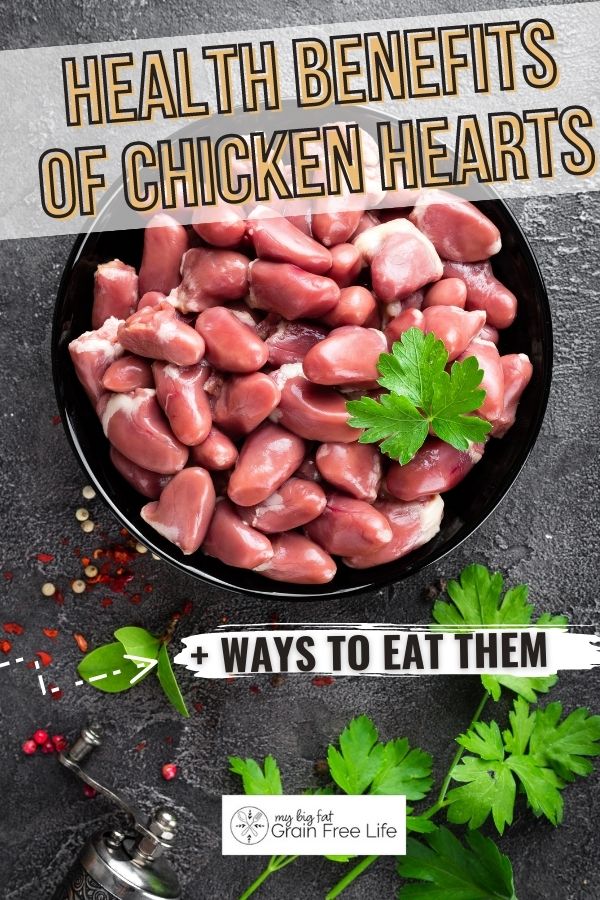
Health Benefits of Chicken Hearts
Have you heard about the health benefits of chicken hearts? The heart of chickens is an excellent source of animal protein that’s full of the protein, iron, vitamins, and minerals you need for good health.
What is Chicken Heart?
Chicken heart is a muscle meat that you can find at your local grocery store. They’re a great source of protein and full of nutrition and are eaten in many parts of the world.
Nutritional Benefits of Organ Meats
Organ meats like chicken hearts, chicken liver, beef liver, and gizzard meat are full of nutrients. You’ll find B vitamins like B12 folate, essential amino acids, and minerals such as iron, magnesium, and selenium. Organ meats are also excellent sources of vitamins A, D, E, and K.
Chicken Heart Nutrition
The nutrition information on chicken hearts includes 5.96 mg of iron, 15 mg of magnesium, 176 mg of potassium, and 3.2 mg of vitamin C.
In addition, chicken hearts have 20% of the B9 folate and a whopping 304% of the vitamin B 12 that’s recommended adults consume on a daily basis.
Chicken Heart Health Benefits
Chicken hearts are an excellent source of protein and essential vitamins. This nutrient dense food has a flavorful, sweet, metallic taste to them. Adding chicken hearts to your diet will provide you with many potential health benefits.
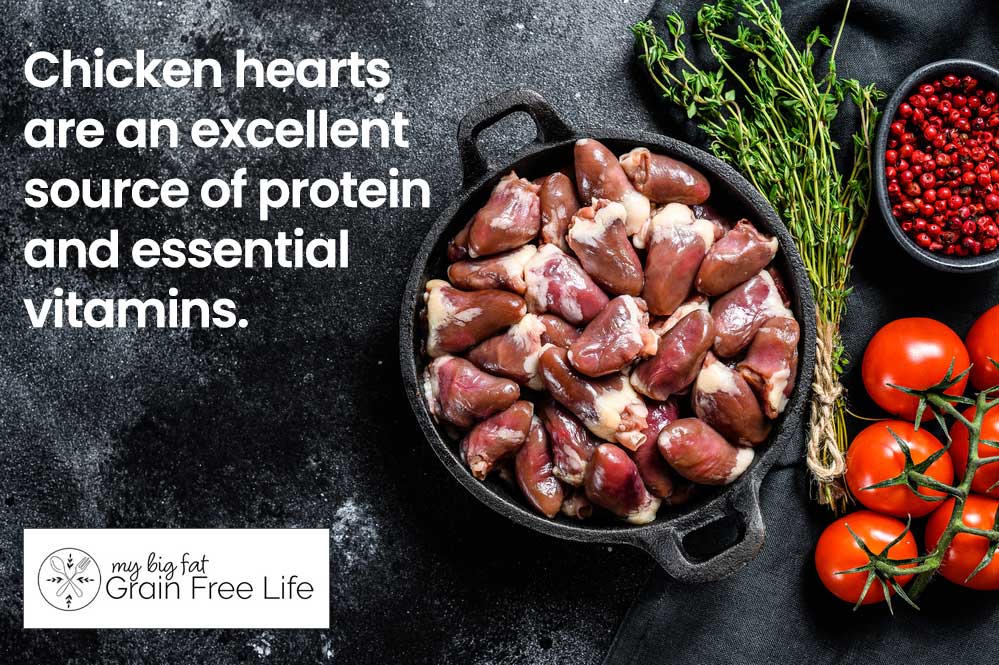
Health Benefits of Chicken Hearts
Besides being a great source of protein, the health benefits of chicken hearts is quite impressive. They are rich in iron, can help build muscles, and even improve your mood. Read on to learn more about the benefits of adding chicken hearts to your diet.
Good Source of Protein
If you’re looking to increase the amount of protein in your diet, consider adding chicken hearts to your meals.
One 3.5-ounce serving of chicken heart has 26 grams of protein. Protein plays an important role in creating and maintaining muscle mass.
It helps improve your immune system. Increasing the protein in your diet may also help you regulate your appetite and reduce food cravings.
Rich in Iron
Chicken hearts are full of iron which plays a key role in red blood cell formation. Red blood cells are responsible for carrying oxygen throughout your body and removing carbon dioxide from your system as well. Iron is also needed for DNA synthesis.
Many people in the world do not have enough iron in their bodies which carries the potential risks of weakness, exhaustion, digestive problems, and a deficient immune function.
Muscle Growth
Protein is needed for muscle growth, and animal protein is an excellent source of protein. Chicken hearts in specific have 26 grams of protein in each 3.5-ounce serving.
Most healthy adults need a daily value of 45 to 55 grams of protein per day, so eating a serving of chicken heart takes care of a large percentage of your daily protein requirement.
Better Oxygenation
Because chicken hearts are full of iron which makes hemoglobin, you will find that you have more oxygen in your body when you eat them. Hemoglobin is the protein in the red blood cells that actually carries the oxygen from your lungs to the different parts of your body.
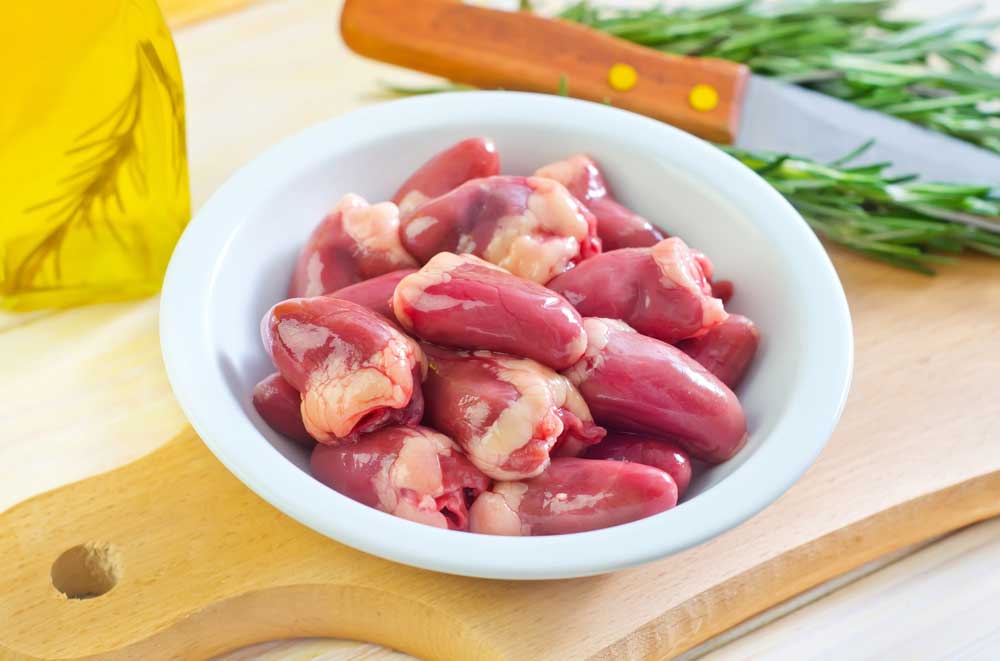
Improved Mood
Eating the internal organs of animals like chicken hearts will provide you with many of the essential nutrients you need as part of a healthy diet including essential fatty acids.
These fatty acids help with the feel-good neurotransmitters in the body as well as proving electrolytes to help you reduce your stress. They also improve your brain function and moods.
Essentially, adding chicken hearts to your diet will help you to feel better.
Vitamins and Minerals
The lean protein of chicken hearts has many important vitamins and minerals like vitamin E. You’ll also find that chicken hearts provide a high amount of copper, phosphorous, and zinc as well.
Enhanced Endurance
Chicken hearts have a high amount of vitamin B12 in them. Ingesting this vitamin is one of the best ways to help reduce fatigue, especially as it reduces the factors that inhibit your endurance.
Plus, B12 may help your body produce melatonin enabling you to sleep better and be more rested in the morning.
Less Saturated Fat Than Some Meats
Saturated fat is a fat that’s found in meat sources and is solid at room temperature. It’s considered an unhealthy fat since there are indications it may increase blood fat, cholesterol levels, and your risk of heart disease.
Chicken hearts do contain 2.26 grams of saturated fat per serving which is less saturated fat found in a serving of ground beef or steak.
Fights Food Waste
Feeding chicken hearts to your family doesn’t just improve your diet. It’s also an excellent way to use all parts of the chicken which helps to reduce food waste since more parts of the animal is used.
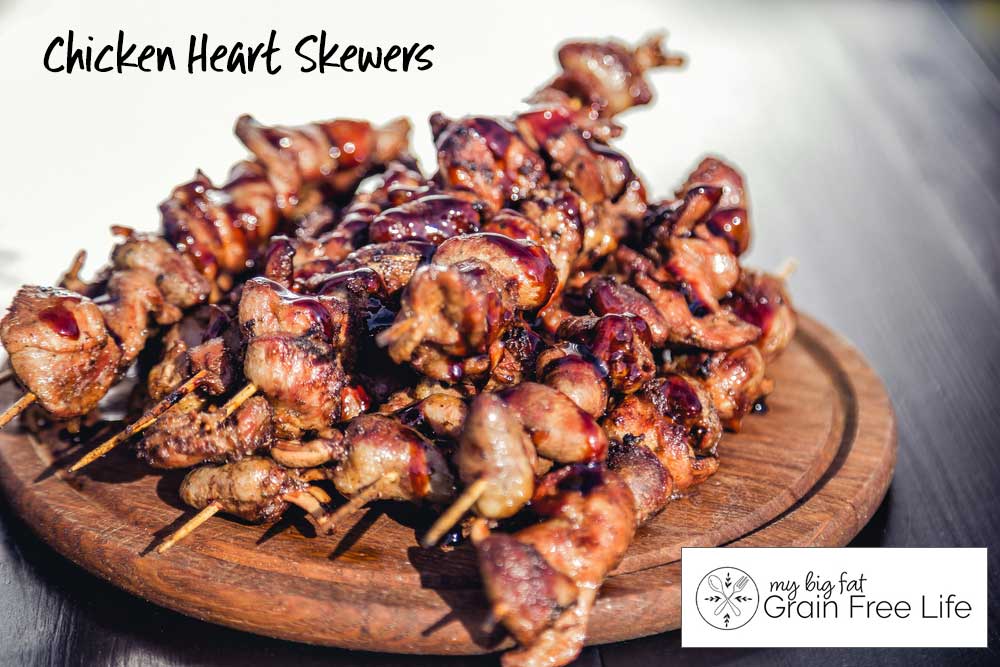
How to Incorporate Chicken Hearts Into Your Diet
Some simple ways to add chicken hearts into your diet are pressure cook them in an instant pot or grill them on a skewer. You can also season the hearts heavily since the hearts have a chewy texture and strong flavor.
Then fry them in a plan for five to ten minutes.
Ways to Sneak Chicken Hearts Into Your Diet
It’s not uncommon for children to object to adding chicken hearts to their diet. Pregnant women can also have a hard time eating chicken hearts because of their strong flavor. One solution is to sneak chicken hearts into your diet.
The secret is to puree the chicken hearts. Then you can add a spoonful or two to the food you are cooking. Add chicken hearts to your scrambled eggs, a stew, stir fry, or even a casserole.
Sourcing Quality Chicken Heart
When you’re looking to purchase chicken hearts for your family to eat, you will want to make sure you find high-quality chicken hearts that are extremely fresh. Consider purchasing the heart from a pasture-raised chicken at your local farmer’s market.
Check for raw meat hearts at butcher shops, specialty stores, and ethnic shops as well. You can also look for freeze-dried chicken hearts if you’re unable to find fresh hearts.
Possible Risks of Eating Chicken Heart
There are a few potential risks that may arise as part of adding chicken hearts to your diet. Chicken hearts may affect your joint health, especially if you suffer from gout. This is because chicken hearts are high in purines which increase the level of uric acid in your system.
The uric acid builds in your joints and may result in a flare-up of gout.
People that are sensitive to dietary cholesterol may also need to be careful about how much chicken heart they eat. The high amount of cholesterol in the food may cause high cholesterol levels.
Your risk of nonalcoholic fatty liver disease may also increase. Nonalcoholic fatty liver disease happens is when you have too much fat in your liver, and the liver is damaged as a result.
Ways to Cook Chicken Hearts
The most common way to cook chicken hearts is to pan-fry the hearts. You can also puree the hearts and add them to various dishes you’re cooking.
Some people also enjoy putting chicken hearts on a skewer and grilling them.
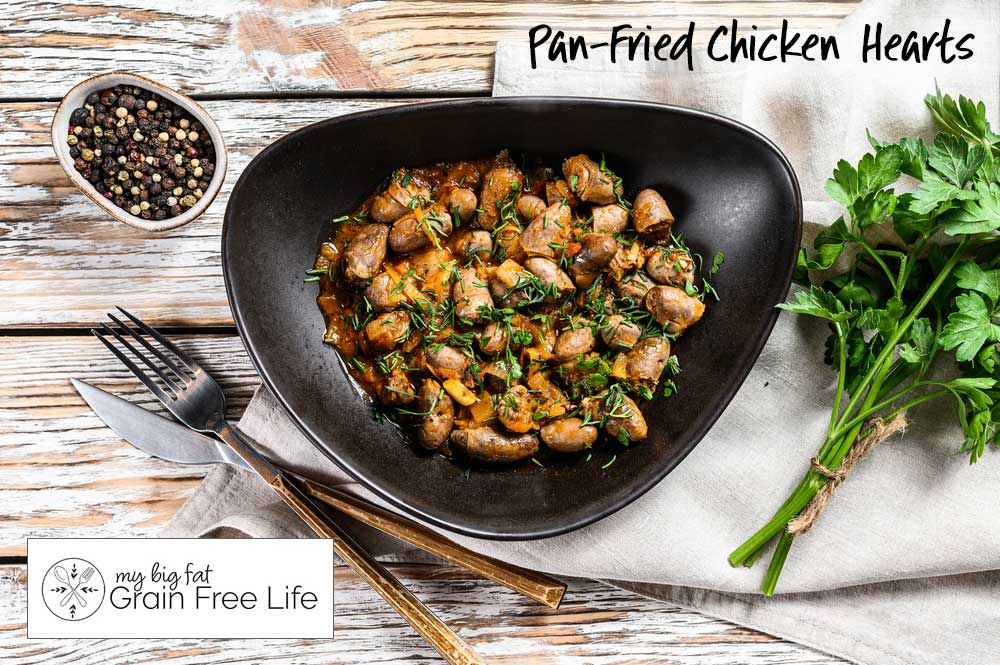
10 Ways to Cook Chicken Hearts to Make Them Taste Delicious:
1.) Grilled: Marinate chicken hearts in your favorite blend of herbs and spices, then grill them over medium-high heat until they are tender and slightly charred.
2.) Stir-fried: Quickly sauté chicken hearts with garlic, ginger, and vegetables in a hot wok until they are cooked through but still juicy.
3.) Skewered: Thread chicken hearts onto skewers and grill or broil them until they are nicely browned and cooked to perfection.
4.) Braised: Slow cook chicken hearts in a chicken broth or sauce until they become tender and infused with rich flavors.
5.) Pan-fried: Lightly coat chicken hearts in gluten-free flour or breadcrumbs, then pan-fry them in oil until they are crispy and golden.
6.) Stuffed: Fill chicken hearts with a tasty mixture of herbs, cheese, or breadcrumbs, then bake them in the oven until they are cooked through and the filling is melted and delicious.
7.) Curry: Add chicken hearts to your favorite curry recipe for added texture and flavor. Simmer them in the curry sauce until they are cooked and tender.
8.) Soup: Use chicken hearts as a protein-rich ingredient in AIP soups, whether it’s a hearty chicken noodle soup or a flavorful broth-based soup.
9.) Broth: Boil chicken hearts to make a savory broth that can be used as a base for a variety of dishes like sauces, stews, or risotto.
10.) Salad: Slice cooked chicken hearts and use them to top a fresh green salad, adding a unique and tasty twist to your meal.
Frequently Asked Questions About Chicken Hearts
Keep reading to find out the answers to many of the most frequently asked questions about adding chicken hearts to your diet.
Is Eating Chicken Heart Good for You?
A chicken heart has a high nutritional value since it’s full of essential minerals and vitamins. Plus, eating chicken hearts is a great way to promote sustainability and fight food waste.
What Makes Chicken Hearts Good for Your Heart?
Chicken hearts are good for your heart because they have the protein and amino acids you need for cardiovascular health.
Are Chicken Hearts Good for Weight Loss?
Yes, are not just a great addition to your diet for nutritional reasons, but they may also help with weight loss. Chicken hearts are low in calories and high in protein. They help you build more muscle mass and you will feel full sooner adding them to your diet.
Plus, the hearts help with energy production since they’re full of iron. Eating chicken hearts will help you have the energy you need to exercise.
Can Chicken Hearts Help Lower Cholesterol?
Dietary cholesterol doesn’t affect cholesterol levels in most healthy adults, so even though chicken hearts are high in cholesterol they are not likely to affect your cholesterol level.


